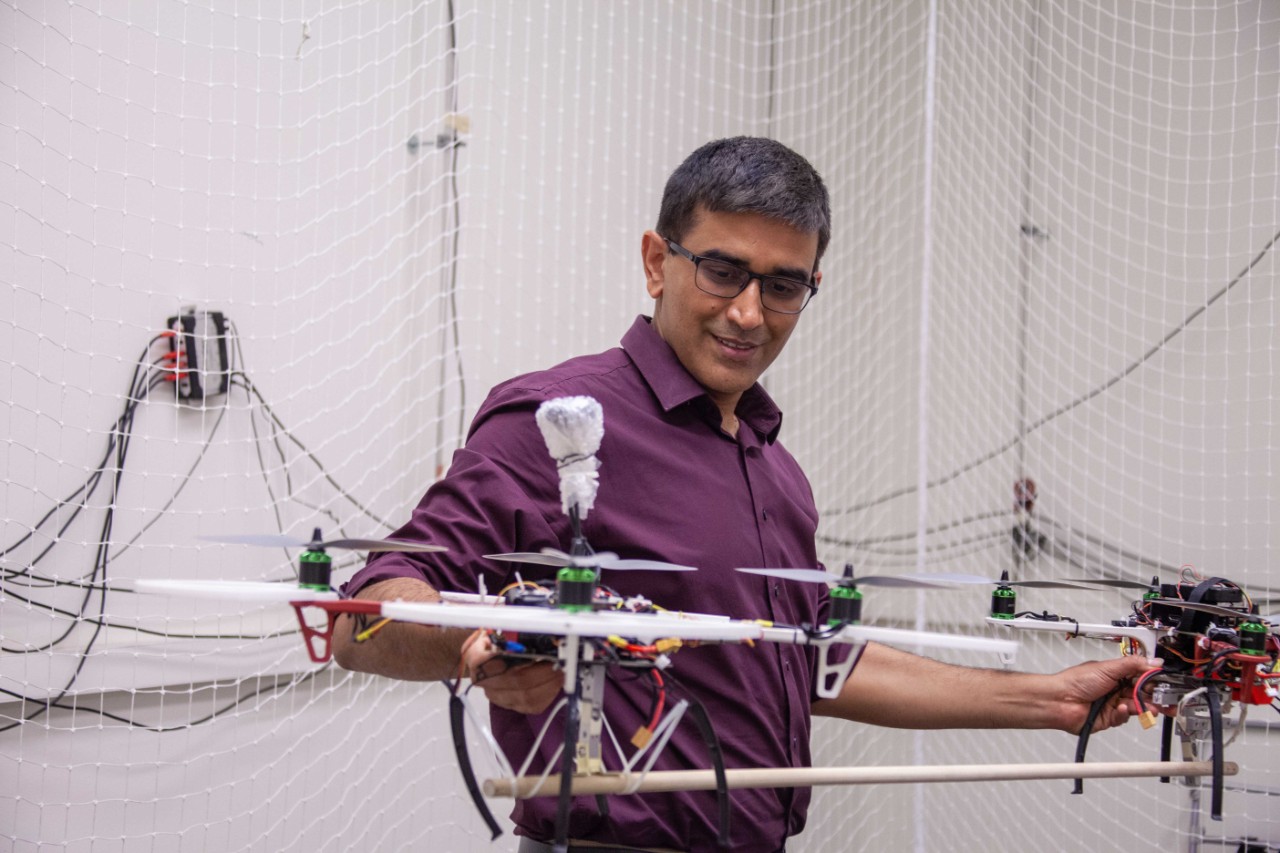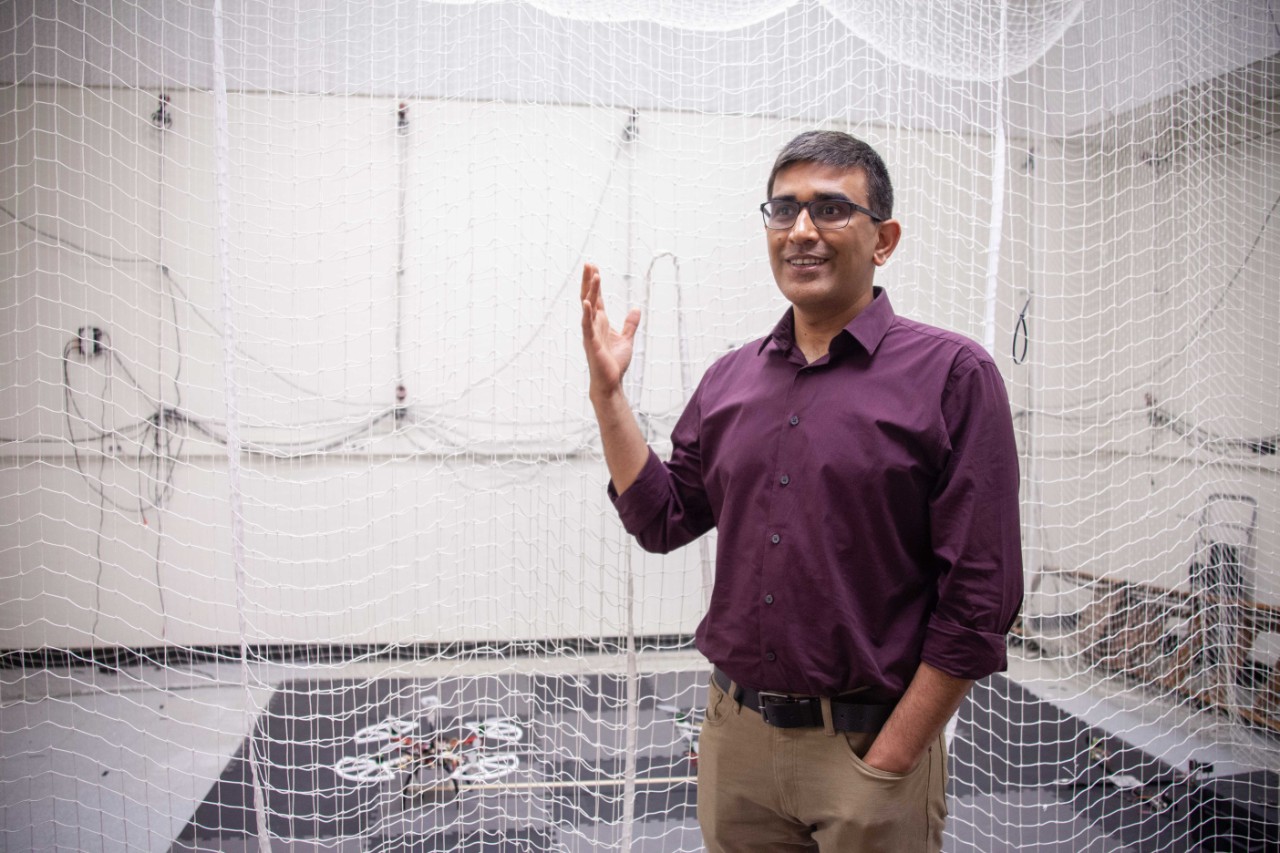
Voice of America: Drones on a leash
UC designs semi-autonomous drone that can be operated on a tether
Voice of America in Russia highlighted the University of Cincinnati's innovations with tethered drones.
UC College of Engineering and Applied Science professor Manish Kumar and his doctoral student Shraddha Barawkar designed a semi-autonomous navigation system that enables drones to remain stable in the sky in turbulent winds or when pulled by the tether attached to the ground.
The goal is to create an easy-to-operate drone for all the myriad uses where an eye in the sky would be beneficial.
UC’s custom navigation system uses artificial intelligence based on fuzzy logic, a type of computer decision making that relies on degrees of truth rather than a binary true-false dichotomy. This makes it a more robust system because no precise inputs are required.
Kumar demonstrated the system in his lab using a four-rotor drone called a quadcopter attached to a wooden rod. When Kumar pushed or pulled the rod, the drone automatically tilted in the same direction, maintaining its stability and position in the air.
“The way we fly kites, we can fly drones,” Barawkar said.

UC College of Engineering and Applied Science professor Manish Kumar talks in his flight lab. Photo/Ravenna Rutledge/UC Creative + Brand
Related Stories
UC professor Ephraim Gutmark elected to National Academy of...
December 20, 2024
Ephraim Gutmark, distinguished professor of aerospace engineering at the University of Cincinnati, was elected to the 2024 class of the prestigious National Academy of Inventors.
Should voters have more say in Ohio's Legislature?
December 19, 2024
UC Professor David Niven talks to WVXU about gerrymandering in Ohio.
What happens when you give co-op students 90 minutes to make a...
December 19, 2024
UC DAAP students on co-op at the Rockwell Group, an architecture firm in Manhattan, are featured in a Wall Street Journal article about the firm's gingerbread house competition. Check out their gingerbread replica of UC's Crosley Tower.
